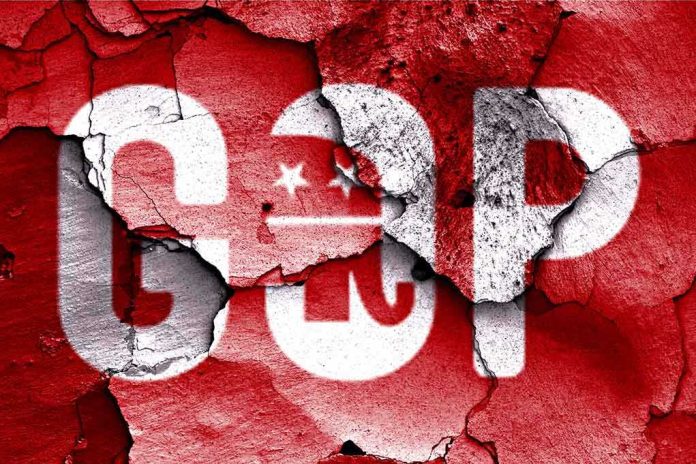
The sudden withdrawal of Trump’s nominee, Paul Ingrassia, sheds light on the precarious balance of loyalty and accountability within the GOP.
Story Highlights
- Paul Ingrassia withdrew his nomination for the Office of Special Counsel following a scandal.
- Leaked texts revealed racist sentiments and extremist views, leading to bipartisan condemnation.
- Senate Republicans urged the withdrawal, showcasing a rare break from Trump.
- The incident underscores challenges in the GOP regarding party discipline and public accountability.
Nominee’s Contentious Background
Paul Ingrassia, nominated by Donald Trump to head the Office of Special Counsel, found himself at the center of a political maelstrom when private text messages were leaked. These texts not only disparaged Martin Luther King Jr. Day but also called for the abolition of Juneteenth and Black History Month. Ingrassia’s admission of having a “Nazi streak” particularly inflamed public and political sentiments, leading to an immediate and intense backlash from both sides of the aisle.
The Office of Special Counsel plays a crucial role as an independent oversight body, and Ingrassia’s nomination was already under scrutiny due to previous controversies surrounding Trump’s appointments. The revelations from Ingrassia’s texts amplified concerns over the administration’s tolerance for extremist rhetoric among its nominees, touching off debates about the standards and vetting processes for such crucial roles.
Bipartisan Reactions and Republican Response
The scandal prompted a swift response from Senate Republicans, including Majority Leader John Thune, who called for Ingrassia’s withdrawal. This marks a significant moment of dissonance within the GOP as it grapples with the boundaries of loyalty to Trump versus accountability to the public. The pressure from Senate Republicans was instrumental in Ingrassia’s decision to withdraw just hours before his scheduled confirmation hearing.
While civil rights advocates celebrated the withdrawal as a victory against the normalization of racist rhetoric, Trump allies criticized the media for what they perceived as character assassination. This divergence of perspectives highlights ongoing tensions within the party and raises questions about the future direction of GOP leadership and the Trump administration’s candidate vetting policies.
Implications for the Trump Administration and GOP
The fallout from Ingrassia’s withdrawal extends beyond immediate political embarrassment for the Trump administration. It underscores the challenges in balancing loyalty with public accountability and sets a precedent that may influence future nominations. The incident also highlights the growing scrutiny and divisions within the Republican Party, as leaders navigate the complex dynamics of party discipline and public opinion.
For civil rights communities, the withdrawal represents a step towards reinforcing the importance of public accountability for government officials, particularly those in sensitive oversight roles. However, the broader implications for the GOP involve a potential recalibration of its internal vetting processes and a reassessment of the boundaries of acceptable political discourse.
The Path Forward for the Office of Special Counsel
With Ingrassia’s withdrawal, the Office of Special Counsel remains leaderless, and the Trump administration has yet to announce a replacement nominee. This period of uncertainty presents both a challenge and an opportunity for the administration. It can choose to nominate a candidate who embodies a commitment to impartial oversight and public trust, thereby restoring confidence in the agency’s role.
The incident serves as a reminder of the critical nature of federal appointments and the need for careful consideration of the values and perspectives that nominees bring to crucial oversight positions. As the GOP continues to navigate its internal dynamics and public accountability pressures, the lessons from the Ingrassia scandal may guide future decisions, shaping the party’s approach to governance and public service.



